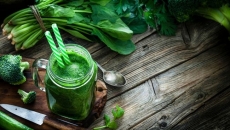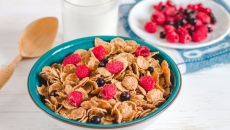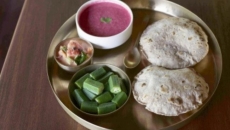New Delhi, Nov 18 (IANSlife) When it comes to nutrition, there's a group of unsung heroes that have quietly sustained civilizations for millennia - millets. These unassuming, small-seeded grasses have been cultivated for both sustenance and fodder for thousands of years, silently thriving in environments where other crops falter. Members of the Poaceae family, millets have been the resilient backbone of societies across the globe, especially in regions grappling with limited water resources.
From the heart of ancient civilizations to the modern dinner table, millets have traversed time and cultures. The Yajur Veda texts also identify this superfood, with Foxtail Millet being called Priyangava, Barnyard Millet being referred to as Aanava, and the Black Finger Millet brought up as Shyamala, thus indicating the consumption of the grain even during the Vedic period. These grains are more than just food; they're ingrained in the very fabric of cultures, shaping culinary traditions that are as diverse as they are delicious.
However, as the world moved toward modernization, the significance of millets seemed to dwindle. With the allure of new and exotic crops, these ancient grains fell into the shadows, waiting for their second coming.
In recent years, millets have undergone a remarkable revival, thanks to their exceptional nutritional value and eco-friendly characteristics. As consumers increasingly prioritize healthier choices, these grains have emerged as nutritional superstars. The world is now rediscovering what ancient civilizations knew all along - millets are not just grains; they're a sustainable source of nourishment and a bridge between our culinary past and a healthier future. Raju Bhupathi, Founder, Troo Good, India’s largest millet snacking company, explains the significance of millets in ancient culture and their applications in the modern world:
Nutritional powerhouses of the past: The annals of time have seen the millets facilitate the transition of human beings from being predominantly hunter-gatherers to farming society. Playing a pivotal role in ancient cultures like the Indus Valley civilization and China, millets contributed to the overall nutrition and sustenance of these societies. Enriched with protein, fibre, and an array of essential vitamins and minerals, millets emerged as stalwart guardians against malnutrition and the sentinels of food security. From being used in humble flatbreads, nourishing porridges, and fermented drinks, this ancient grain's versatility has furthered a tapestry of cultural traditions and rituals. Apart from being nutritional powerhouses of the past, millets held economic significance in ancient trade and barter systems.
Millets in the Modern World: As modern agriculture heralded the era of high-yield crops like rice and wheat, the once-potent presence of the millet faded into obscurity, changing the once cherished traditional farming practices and indigenous wisdom from our collective memory. However, in recent times the millets have revealed themselves not just as a nutritional juggernaut but also as a champion of sustainability. These hardy crops, characterized by their minimal water requirements and inherent resistance to pests and diseases, have assumed a critical role in the spotlight, offering a promising solution for sustainable agriculture and climate change adaptation. The revival of millets knows no borders. International organizations like the UN have acknowledged their potential in tackling global malnutrition and food insecurity. Consequently, millets are being embraced as vital components of humanitarian initiatives and nutrition interventions worldwide. This revolution offers a paradigm shift in our perception of what healthy and delectable snacks can be. This resurgence breathes life into the livelihoods of farmers, vendors, and suppliers, offering economic opportunities that ripple through communities and nations.
Balancing Tradition with Innovation: In the resurgence of millets, entrepreneurs, chefs, and culinary enthusiasts are rediscovering ancient recipes, infusing them with modern flavours. The millets' adaptability shines in contemporary cuisine, highlighting their versatility. This revival sparks a renewed interest in traditional farming, bolstering small-scale farmers and crop diversity. Governments and organizations champion millet cultivation through policies, seed subsidies, and research investments. Educational initiatives spread awareness about the millets' nutritional and environmental benefits.
The rebranding of the millet from an ancient staple to a modern superfood is a testament to their resilience and adaptability. This full-circle moment of this wonder grain embodies the potential to address contemporary challenges like malnutrition and climate change. A kilogram of millets requires only 650-1200 litres of water, whereas up to 5000 litres of water is required to cultivate the same amount of rice, making the millet a far more viable option to grow in arid and semi-arid regions, while also being eco-friendly. As we embrace their ancient wisdom and balance it with modern innovation, production practices, and harvesting techniques, millets present an invaluable opportunity to sustain human health and the planet's well-being for generations to come.






